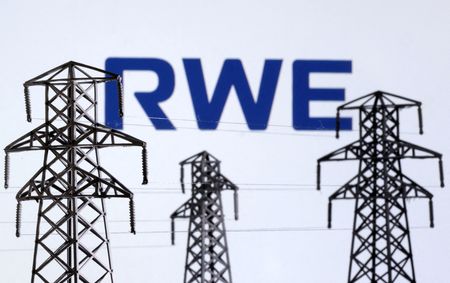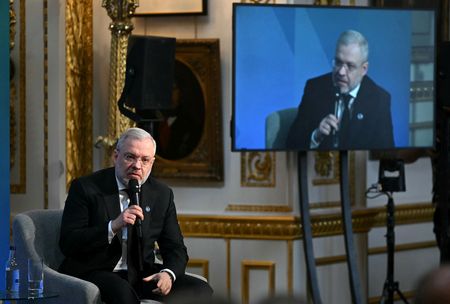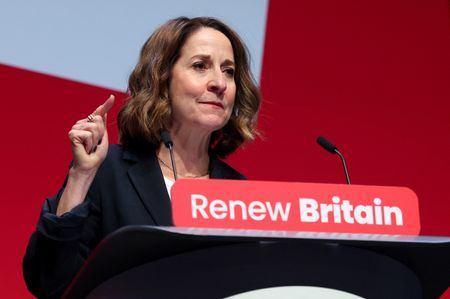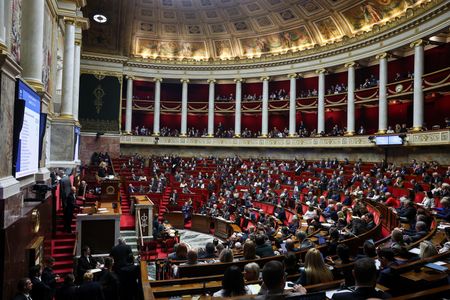By Christoph Steitz and Tom Käckenhoff
FRANKFURT/DUESSELDORF (Reuters) -RWE, Germany’s largest power producer, reported higher-than-expected profit for the first nine months of the year, boosted by a 225 million euro ($262 million) book gain on the sale of a data centre project to a large unnamed cloud service provider.
Shares in RWE, which is also the world’s second-biggest developer of offshore wind projects, rose as much as 7% to their highest level since March 2011. They were last trading 6.7% up.
The sale of the facility, located on the site of a former coal-fired power plant in Britain, could herald similar deals as big software companies are scouring the market for locations in Europe and elsewhere to power energy-intense AI technology.
“Our locations are… highly attractive to technology companies and hyperscalers,” RWE finance chief Michael Mueller told journalists on Wednesday. Hyperscalers are large cloud computing providers such as Meta Platforms, Amazon, Microsoft and Alphabet’s Google.
“They are looking for attractive locations for their power-intensive AI investments. Our power plant locations with existing infrastructure and grid connections are a real asset here.”
RWE LOOKS AT 10 DATA CENTRE PROJECTS IN EUROPE
Nine-month adjusted earnings before interest, tax, depreciation and amortisation fell by 13% to 3.48 billion euros, said RWE, beating the 3.14 billion average forecast in a company-provided poll.
This was mainly driven by the data centre-related book gain, which was not received until October but was still reflected in nine-month figures.
RWE declined to name the buyer, but Mueller said that the company was looking at more than 10 data centre projects across its key European markets – Germany, Britain and the Netherlands – and that more deals could follow, adding the utility last year sold a location to Microsoft in Germany.
“We are involved in a wide variety of development projects at all our locations … which are essentially aimed at ensuring the reuse of our sites, but also at discussing the possibility of power purchase agreements with data centres and providers,” he said.
Analysts at Jefferies said they expected the sale of the UK project to be well received as it was part of a wider trend around spending on artificial intelligence, with data centres requiring large amounts of power.
Investments from the five major hyperscalers are expected to roughly double from 2024 to 2027 to $500 billion annually, according to Barclays strategists.
($1 = 0.8575 euros)
(Reporting by Christoph Steitz and Tom Kaeckenhoff; Additional reporting by Vera Eckert; Editing by Alexander Smith and Emelia Sithole-Matarise)










